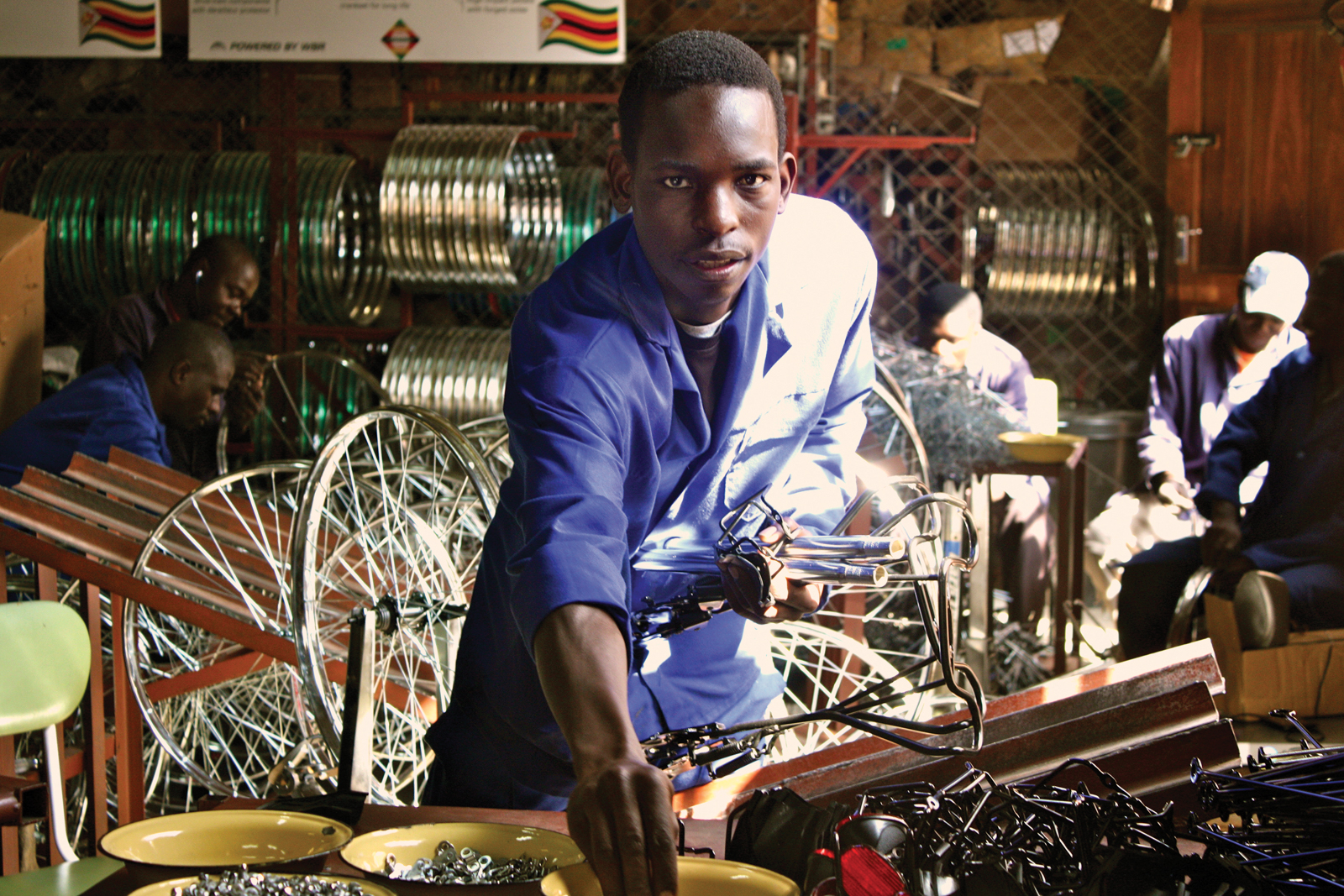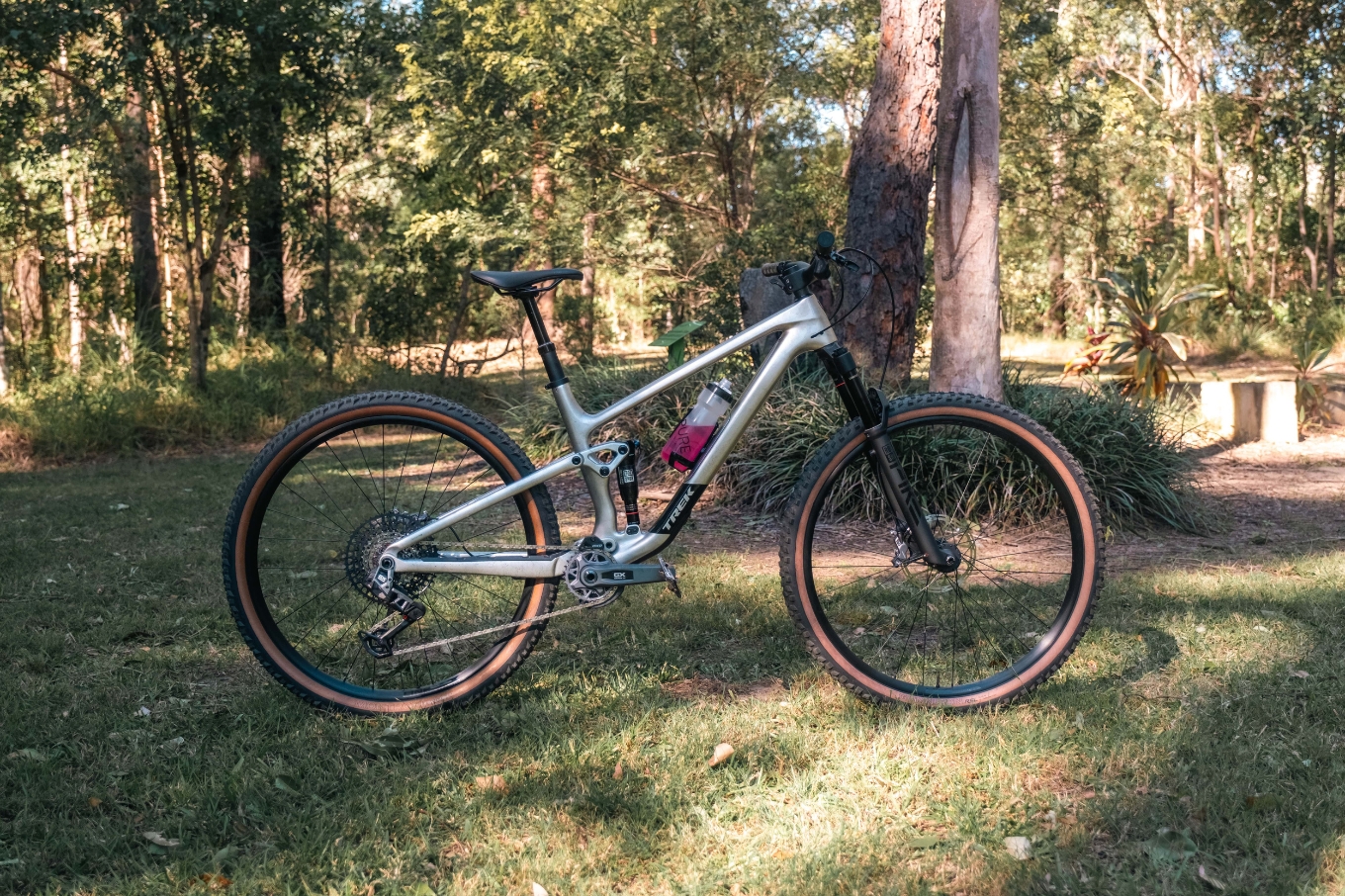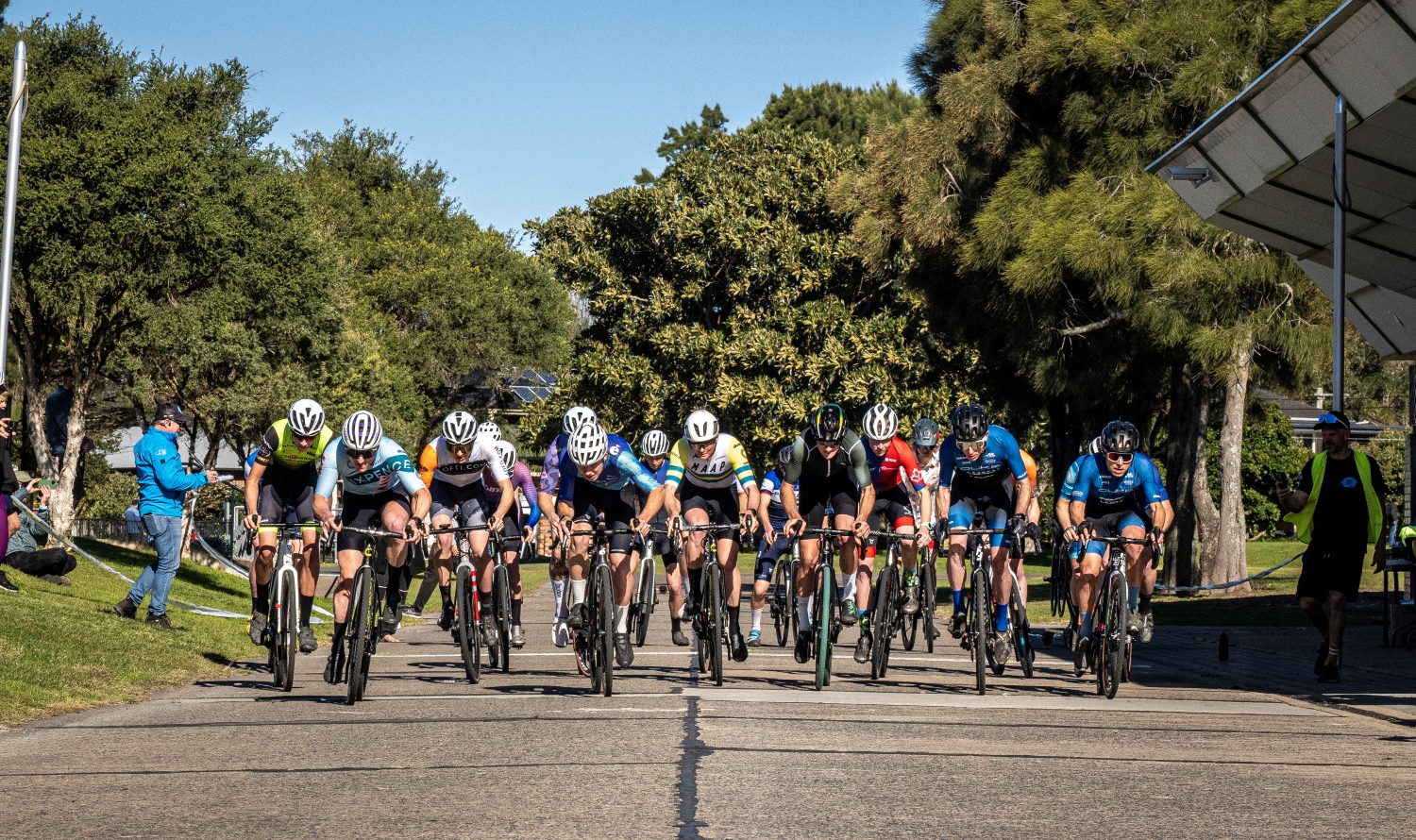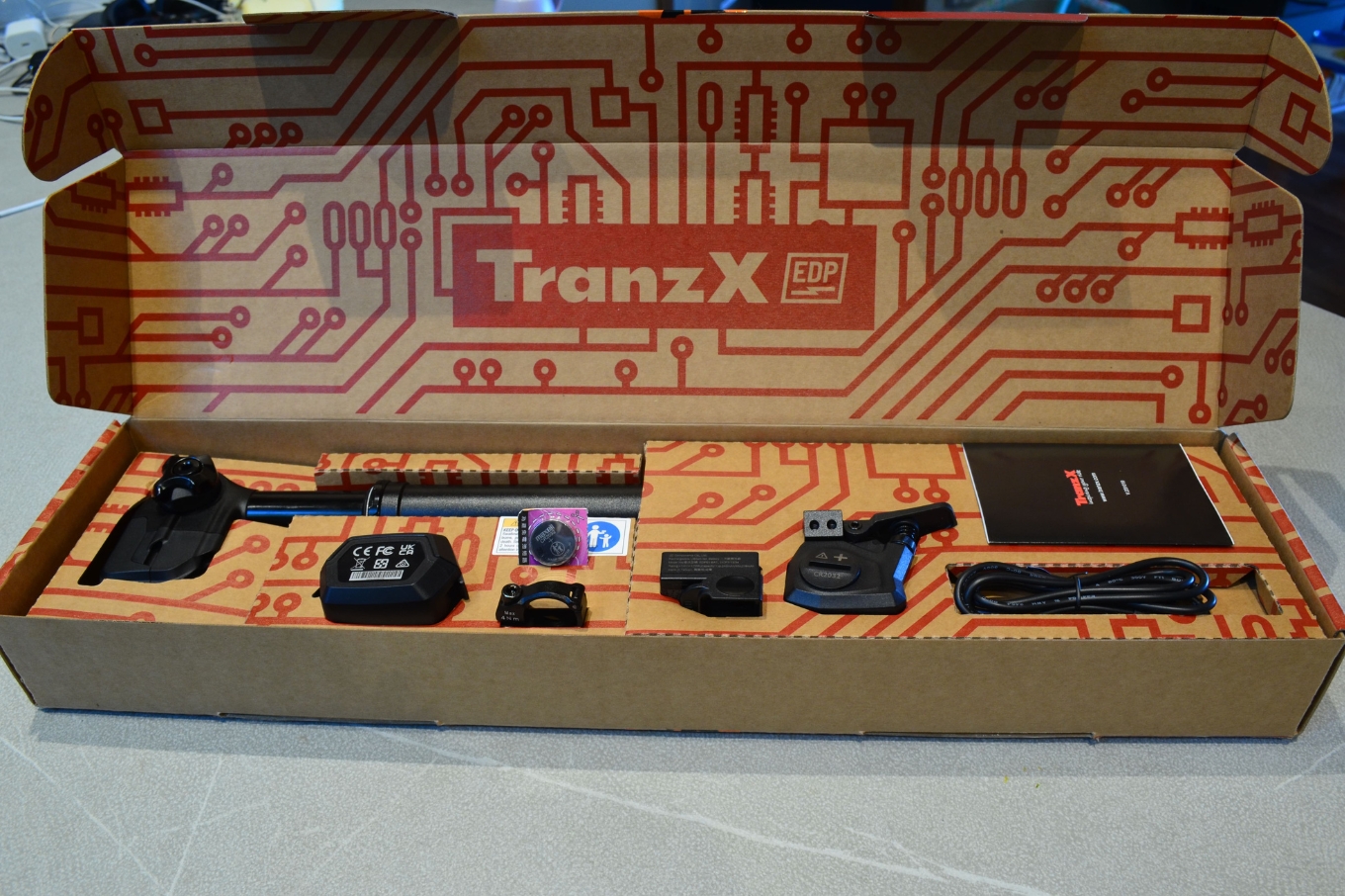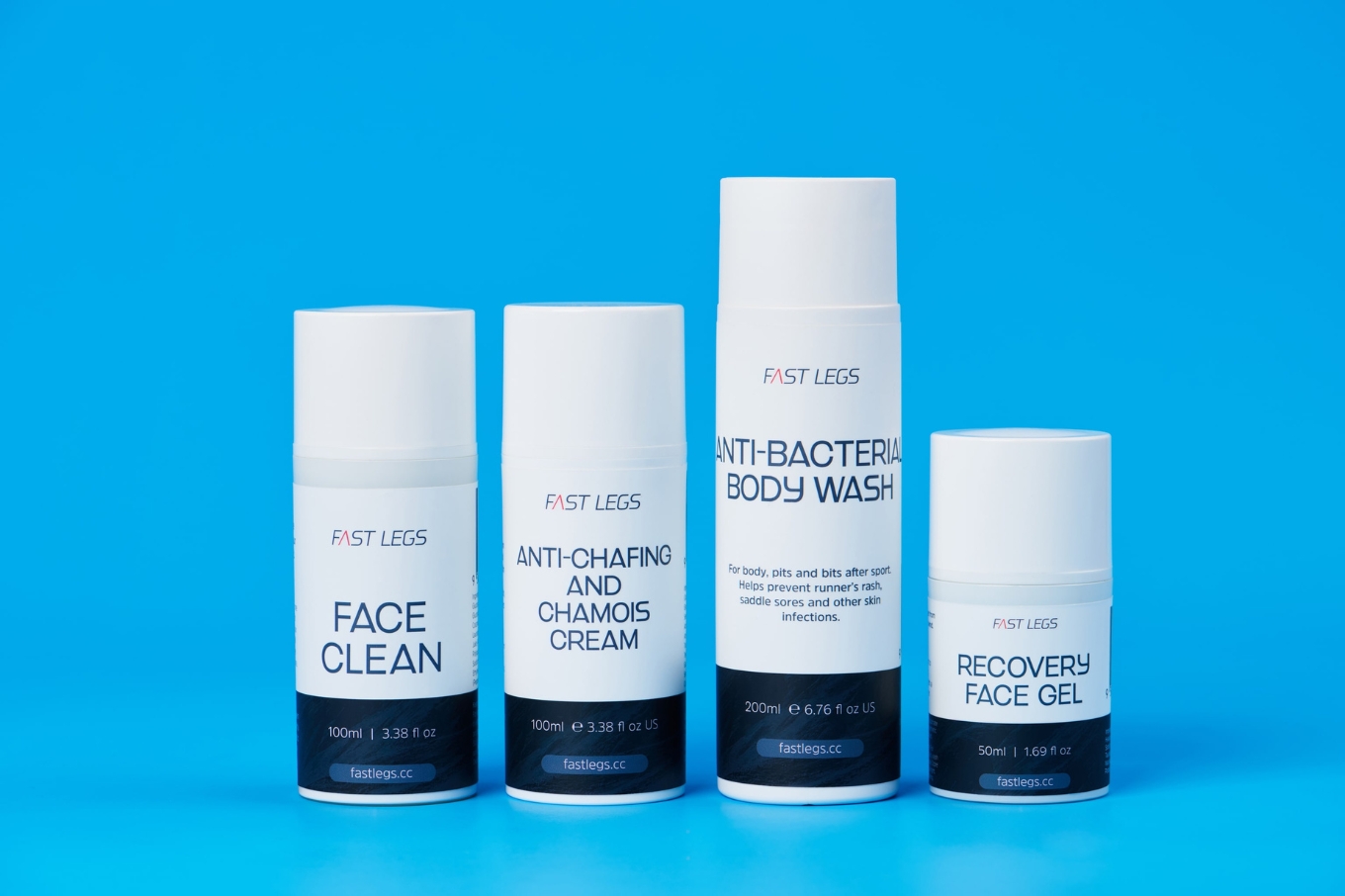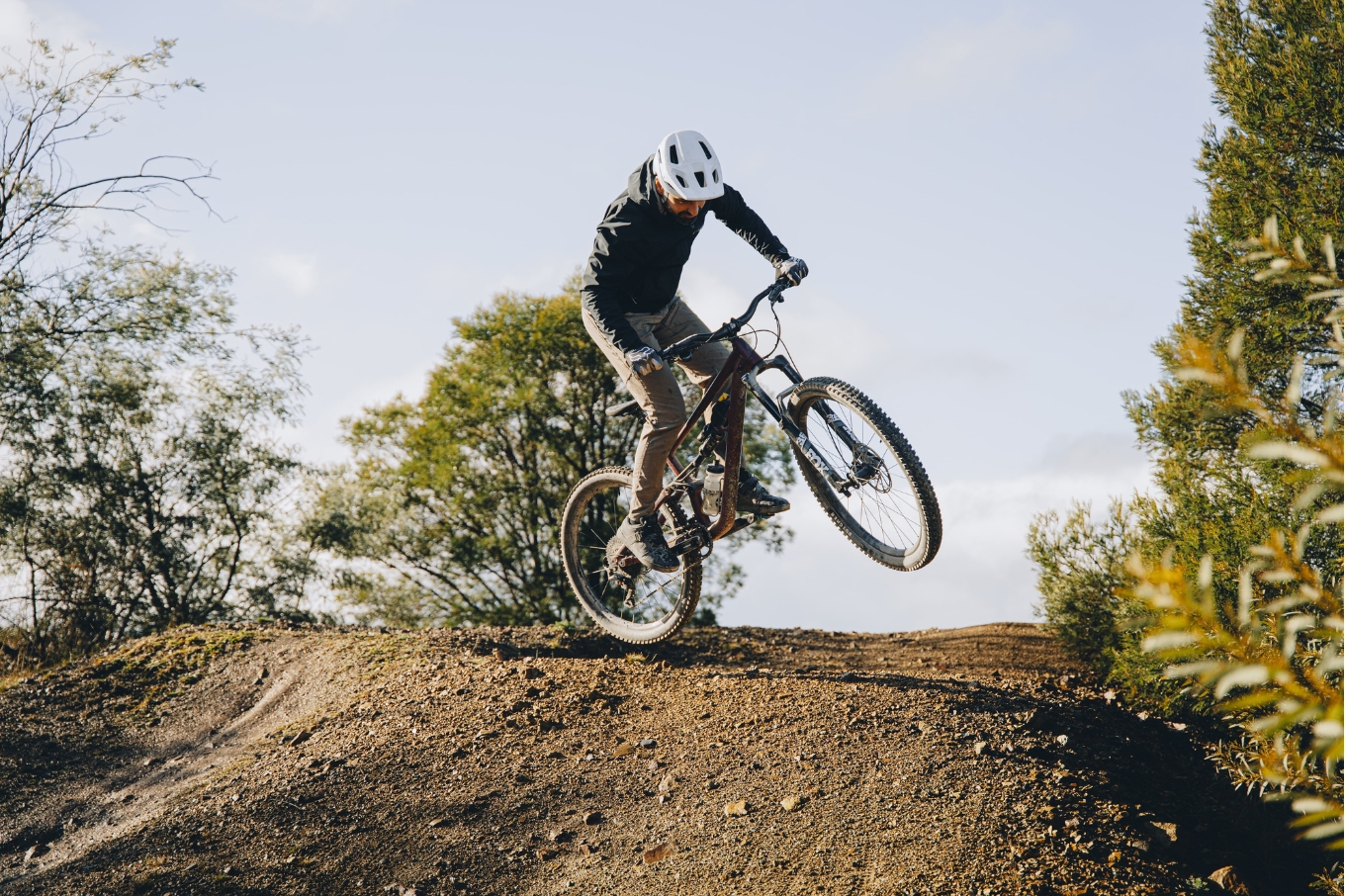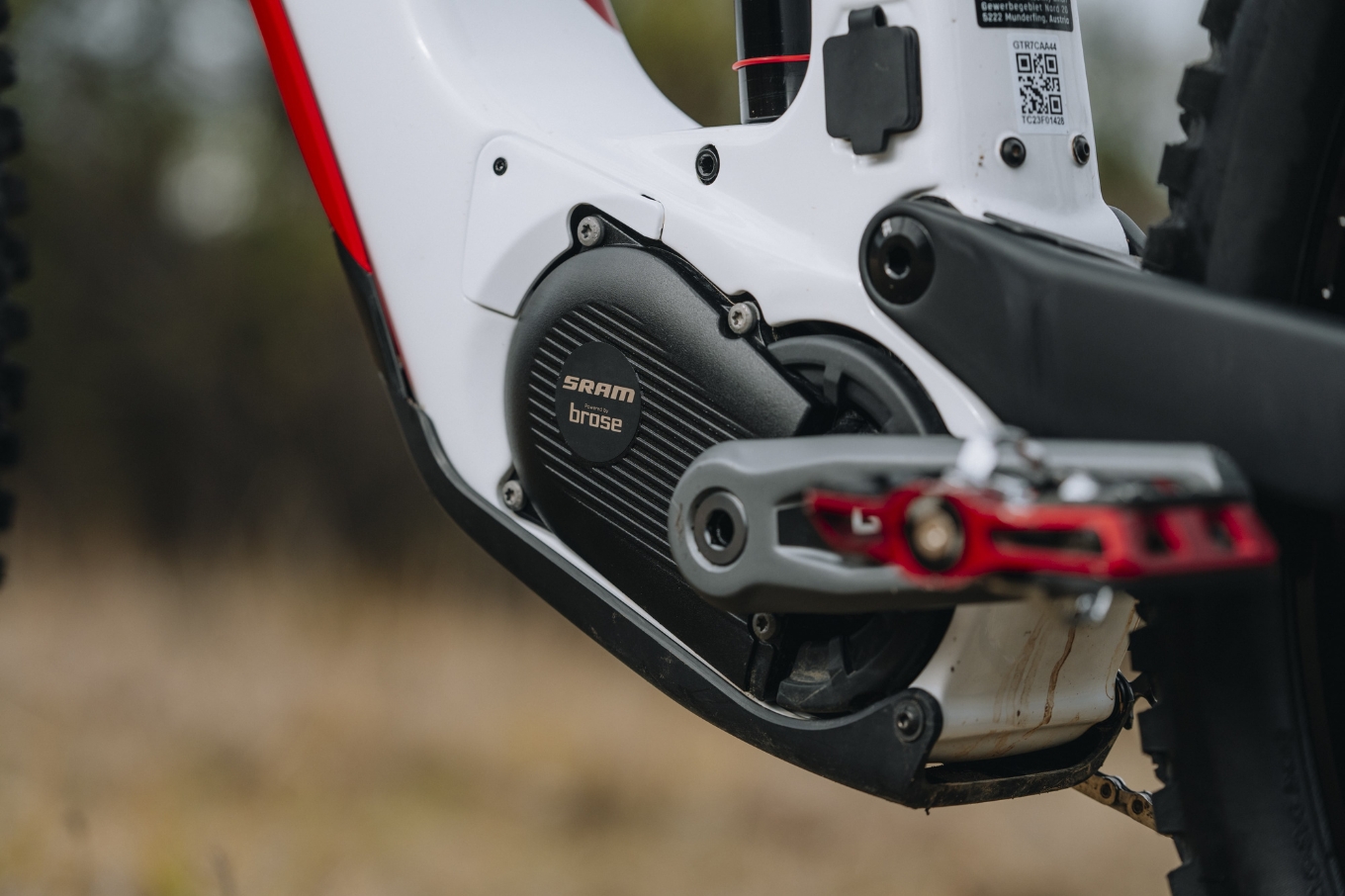Bikes for better futures
Bikes are great, but people changing other peoples' lives with bikes are even better. Lighthouse Youth Projects and World Bicycle Relief are doing just that, and their stories are well worth a read.
Words: Will Shaw
Photos: Lighthouse Youth Projects, World Bicycle Relief
If you’re reading this, there’s a pretty good chance bikes have changed your life, probably in more ways than one. Whilst people reading this are more likely to feel passionate about the many benefits cycling can bring, within wider society the humble bicycle may not be considered as highly as a vehicle for change.
Two organisations that are using bicycles to truly change the world are Australian based charity Lighthouse Youth Projects, and global charity World Bicycle Relief. Whilst they’re going about it in different ways, both of these organisations are changing people’s lives through bikes.
Lighthouse Youth Projects (LYP) began in 2013. LYP’s founders Jamie Moore and Ryan Lloyd wanted to use their combined cycling and industry experience in a way that benefited others. In the years since, LYP have developed and implemented a number of programs aimed at using bikes as a tool for positive change.

Jackie Schapel is one of LYP’s mentors as well as their Marketing Manager, and she says their programs are using bikes to change lives by giving at-risk youths a positive outlet.
‘The core belief of Lighthouse is to work with at-risk youth and help them create positive change in their own lives,’ says Jackie.
In LYP’s mission to help at-risk youth, the bicycle is used as a tool, be that through riding bikes, fixing bikes, or using bikes as an avenue to really connect with someone. LYP works with over 100 at-risk youth in both South Australia and Tasmania.
LYP delivers a diverse range of programs and workshops. Some focus on structured learning, others on pre-employment activities. They also work with young people who are on remand or in youth detention, these sessions focus on incorporating the concept of positive risk taking to replace what might end up being criminal behaviour.
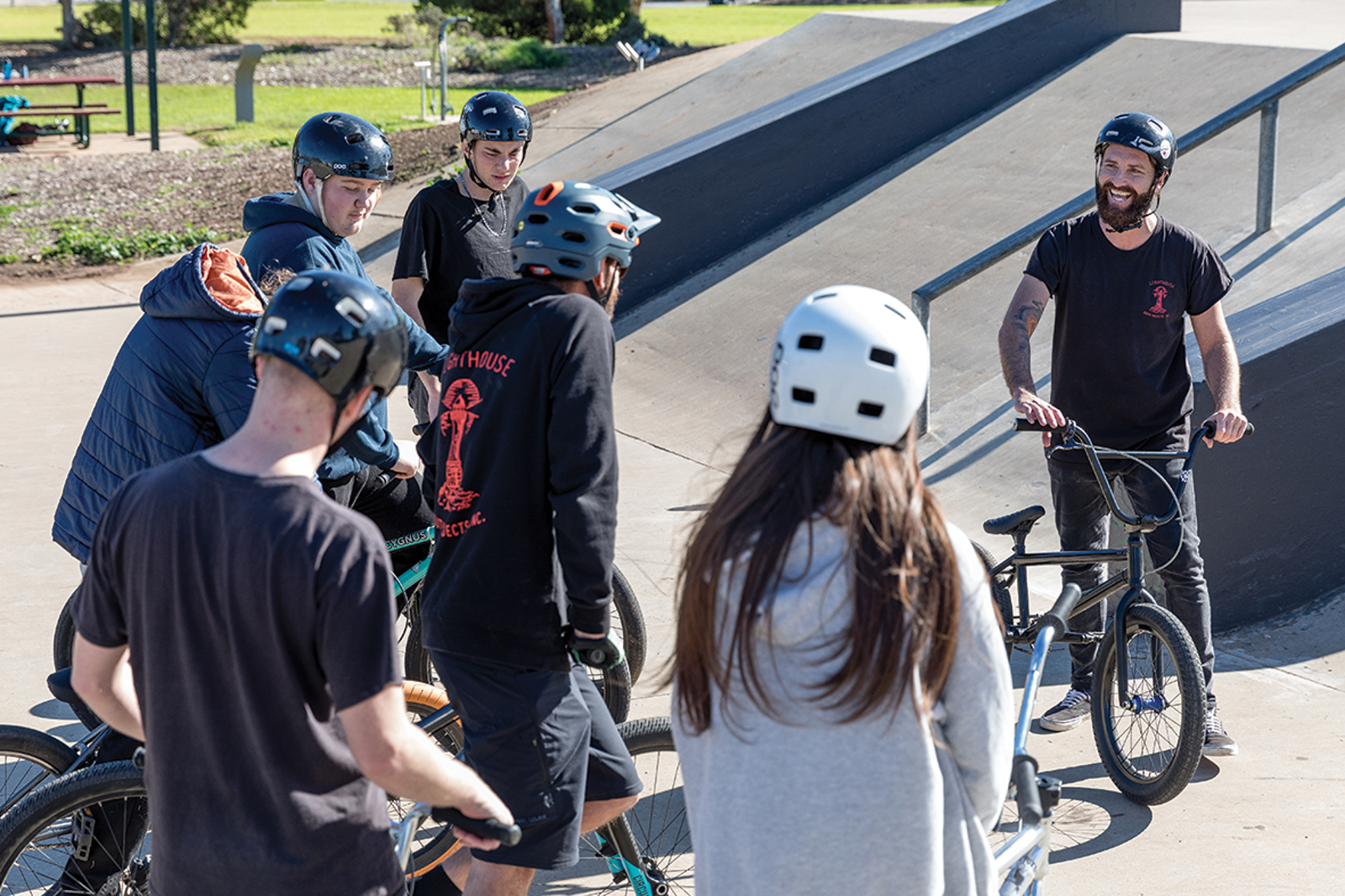
A number of LYP’s programs run throughout the school term and they provide participants with something different than the typical classroom experience they’re not engaging with. An example of this is their Balance program, aimed at 11–17-year-olds. Co-Founder Jamie says the young people LYP work with are often on the edge of dropping out of the education system altogether.
‘As an organisation we’re really trying to catch those students who have fallen through the cracks where traditional means of education have failed to engage them. Our programs are designed to get kids pumped again and want to come to class, as they’ve often completely disengaged in the classroom. With the Balance program, we work with individual schools who’ve identified students on the verge of leaving the education system forever.’
Jackie says that LYP can provide a positive experience for these young people in a number of ways.
‘We might have a kid who weighs 110 kilograms who’s having a really tough time at school but wants to try riding a bike. Simply rolling down the street is a massive achievement. Some of the youth we work with haven’t had someone simply say ‘well done! You’re doing a great job!’ for years, so our positive encouragement gives them a sense of empowerment they haven’t felt in a long time.’
Throughout all of the programs LYP run there’s always the foundation of setting program participants a task, emphasising the responsibility that sits alongside completing the task, and highlighting what a sense of achievement feels like on completion.

Fellow Co-Founder Ryan is a firm believer on finding individual’s ‘other superpowers’ that might not be evident in normal workplace or classroom setting.
‘When it comes to a particular student, their skills might not be appreciated in the classroom, but they get a real boost from feeling worthwhile teaching the other kids. Their role can be to buddy up with someone and help improve someone else’s riding.’
The benefits of LYP’s programs aren’t just boosting the participants’ self-esteem and fostering an interest with positive health benefits. Their programs are proven to improve both quantitative metrics like attendance and grades, as well as qualitative improvements in positive behaviour.
‘With our Balance program we’ve got some real tangible improvements, aspects such as grades and attendance improving. There are also the intangibles like respectful behaviour and self-regulation of impulsive behaviour. The program happens during school hours, so the kids use a workbook and an app that we developed specifically for the program. We use methods like asking them how they would go about getting approval for a new riding spot in their area to target communication and planning skills,’ says Jamie.
Whilst LYP focus on programs involving BMX and mountain bikes, Jackie says it’s not about structured sessions focussing on skill development and sessioning technical features.
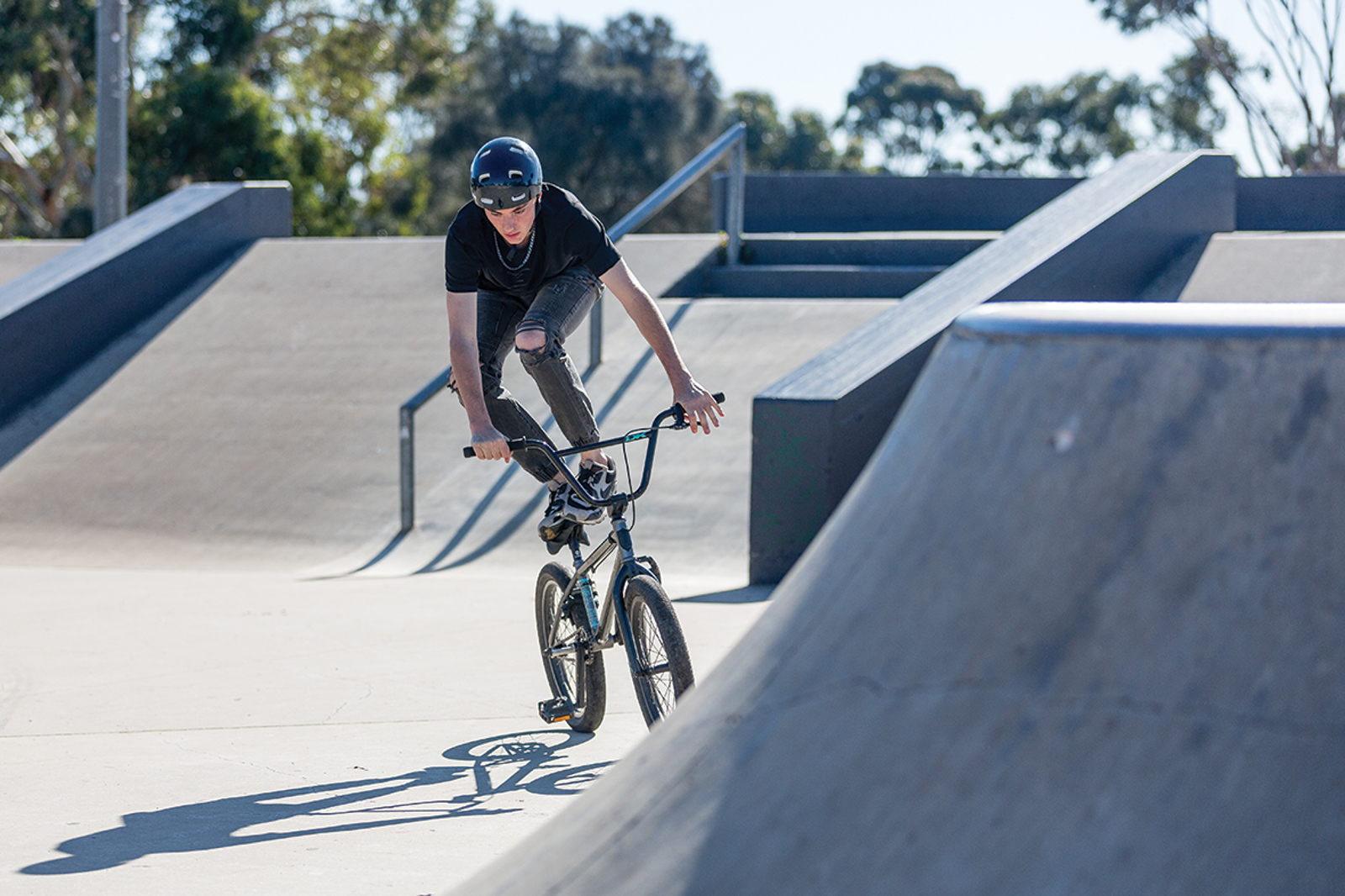
‘In my role as a mentor, initially I wanted to build people into badass mountain bikers, but I learned quickly that’s not necessarily what everyone needs. Sometimes people just need to ride along and forget the tricky things happening in their life or even talk it out a bit. If that’s what we can do, then that’s awesome.’
Jackie says LYP has been lucky to receive amazing support from local businesses in the area they work in that helps them help others.
‘We’re working with a couple of bike stores in Adelaide where for example they’ll donate a set of tyres if a customer wants to swap them out during their purchase. We’re then able to put those tyres to good use.’
Whilst she says LYP would love to expand across Australia, Jamie and Ryan want to consolidate and refine the existing programs in SA and Tasmania before any potential expansion.
‘We know what we do is hugely important, and it works. The key to our success is our mentors; anyone can tell someone to turn the pedals over, but only select individuals can adapt and relate whilst giving 110% of themselves to these young people. At the moment we’ve got an amazing, diverse crew with both bike and life experiences in lots of different areas. Maintaining the qualities and values of our mentors is important to us,’ says Jamie.
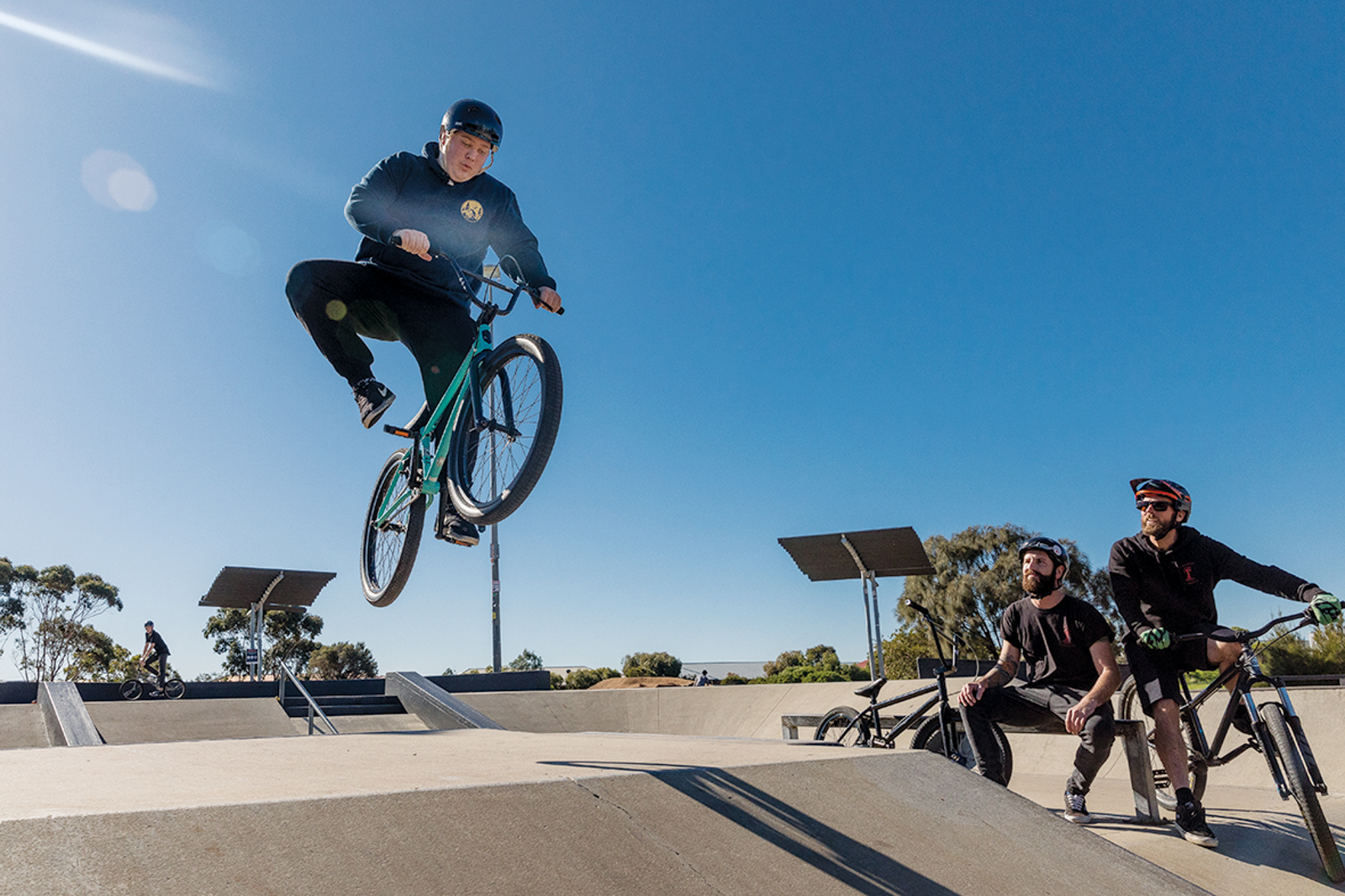
LYP have also been lucky enough to snag some big names in the mountain biking world like Connor Fearon, Shelly Flood, and Troy Brosnan. When certain programs are running and it fits in with her schedule, Shelly mentors on a weekly basis. During his time in Australia away from racing due to COVID, Connor has been a volunteer mentor across many of LYP’s programs. Troy Brosnan, mechanic Aaron Pelttari, and ‘all-round mad dog’ Jai Motherwell have also come in to speak with program participants.
Jackie says the kids are really inspired when they hear from successful people that if you work hard enough, you can achieve anything.
‘We had Connor Fearon and Shelly Flood working with us quite a bit last year as they weren’t travelling for racing as much. Even before then, both Connor and Troy (Brosnan) have come in to talk to the kids. It’s so inspiring for them to see the life you can lead if you put your mind to it. None of those successful people had their life handed to them. They learn that you really want to do something, you need to get stuck in.’
Another initiative LYP have begun is a Bike Drive in conjunction with local councils and National Recycling Week. Last year over the course of one weekend 400 bikes were donated. With a bit of mixing and matching LYP now have upwards of 100 bikes they can repair and service as part of their mentoring projects.
They also have these bikes to provide to program participants who aren’t able to purchase their own. In addition to this, the bikes that aren’t suitable for program will be sold at their Annual Garage Sale, with proceeds going directly back into program delivery.
‘In our last bike drive we were really lucky. We got so many bikes that with a little bit of love they’d be ready to go to a new owner for another life. We also have our cycle of change program, where we’ve provided over 300 BMX bikes to at-risk kids. It’s not just given to them; they create value by putting in the time at our bike donation drive to get bikes ready to roll,’ says Jamie.
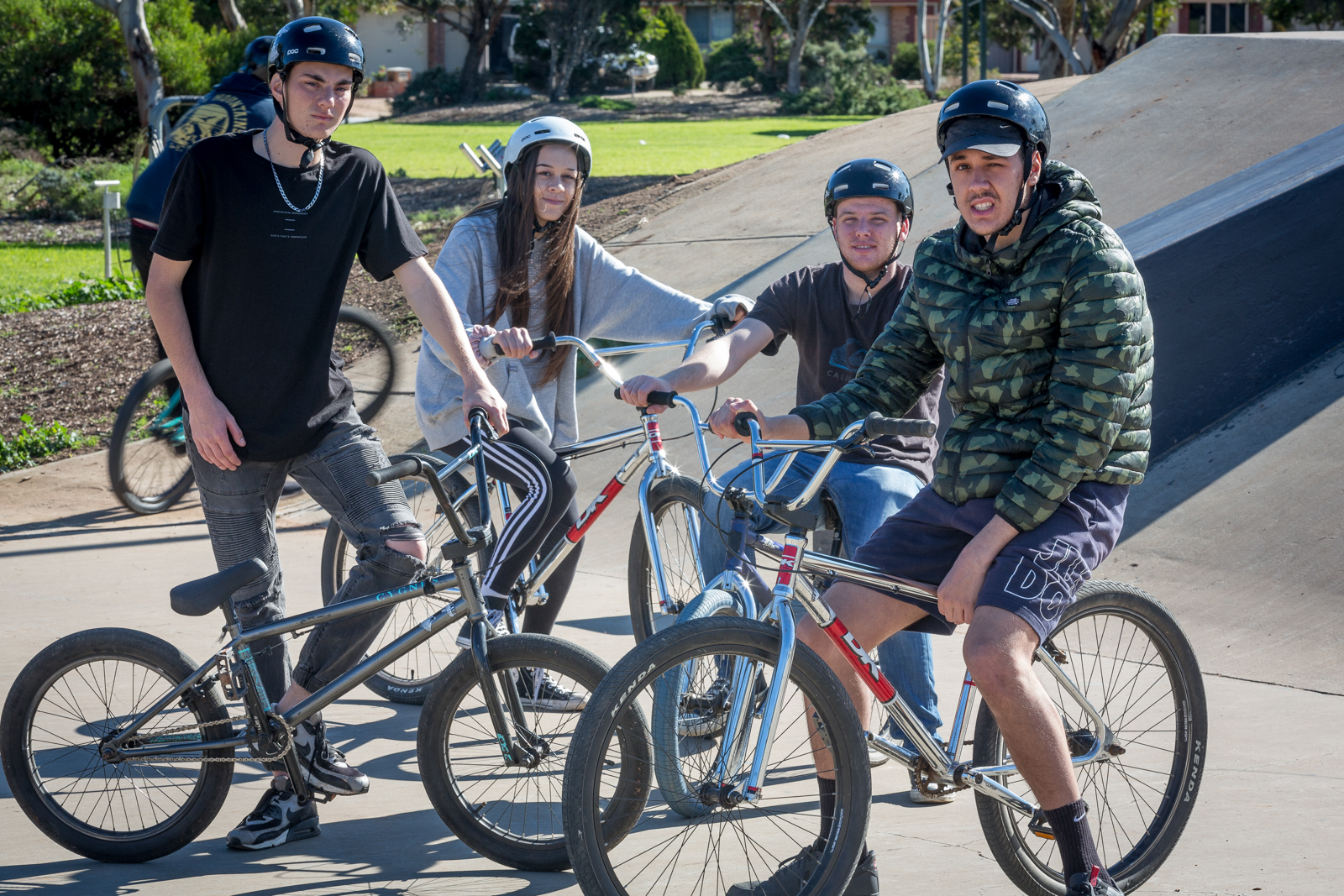
The impact of LYP is having on the lives of young people is perhaps best summed up by a story Jamie tells of an ex-program participant. This participant came back to do their work placement at one of the programs LYP co-delivers as part of their course to become a certified social worker.
‘If you’d told us that participant was going to be a social worker when they first joined the program, I would’ve had difficulty believing that. To then see them come back and have such a positive influence is proof that these programs can create the positive change we’re striving for,’ says Jamie.
LYP are an inspirational organisation who prove the bicycle can be far more than a tool for recreation. With their passionate team and professional approach, there’s no doubt they’re an organisation we’ll see plenty more of in the future.
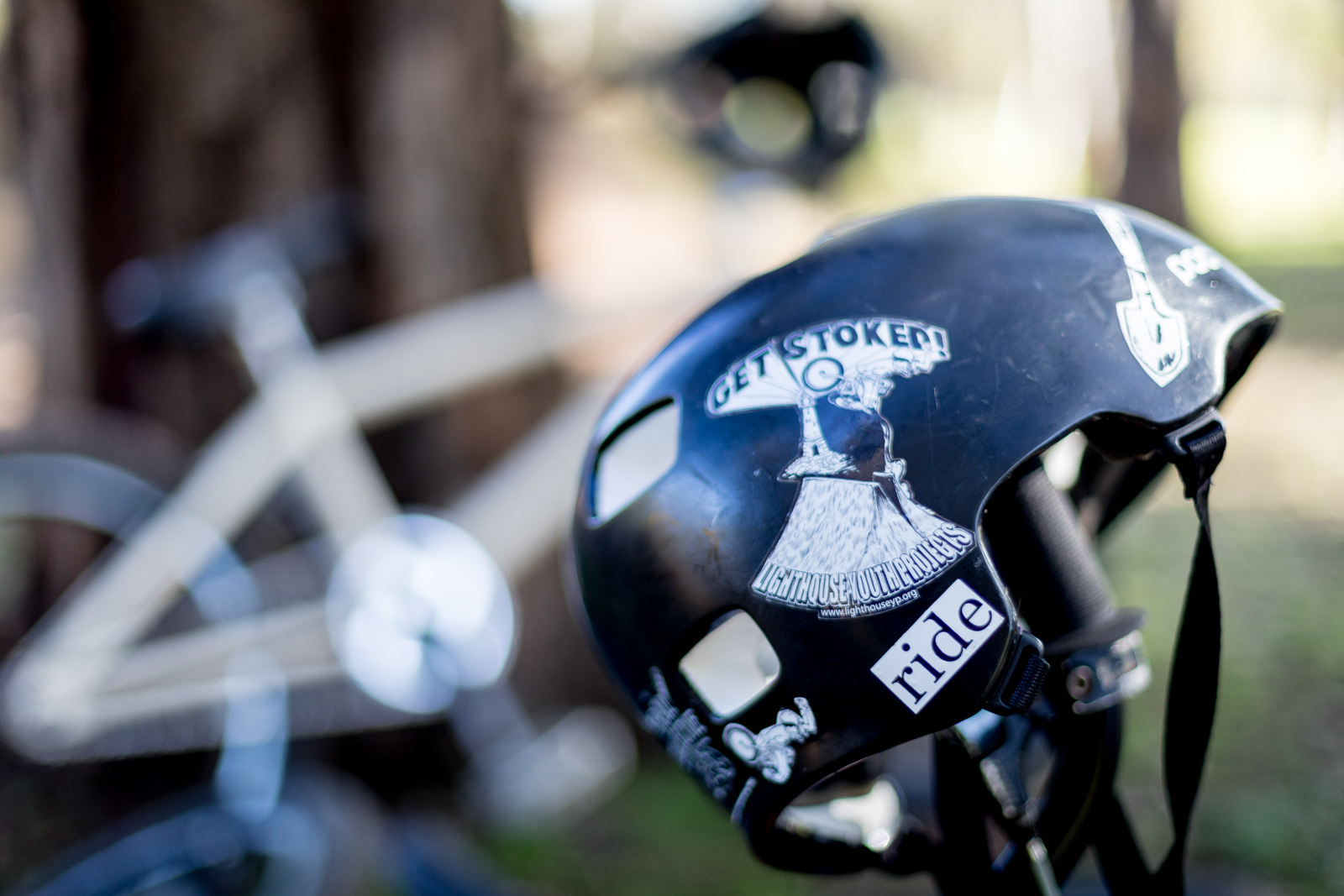
Want to learn more or donate? Head to https://lighthouseyp.org/.
Working globally:
World Bicycle Relief (WBR) was founded in 2005 by FK Day, one of the founders of SRAM, as well as his partner, Leah Missbach Day. The inspiration to begin the organisation came from seeing the devastating effect the Indian Ocean tsunami had on Sri Lanka. They believed bicycles could help displaced survivors with access to basic essentials such as education and healthcare. Through the support of SRAM and other bike industry contacts, FK and Leah distributed more than 24,000 bikes to tsunami survivors.
Since 2005, WBR have now provided over 540,000 bikes to people in need across 19 countries. Their primary aim is to mobilise people in the rural areas of developing countries where distance is a barrier to education, healthcare, and economic opportunity. Anthony Shippard is a non-executive director of WBR Australia, and he says WBR’s close ties with SRAM, as well as other bike industry brands allows them to work so effectively.
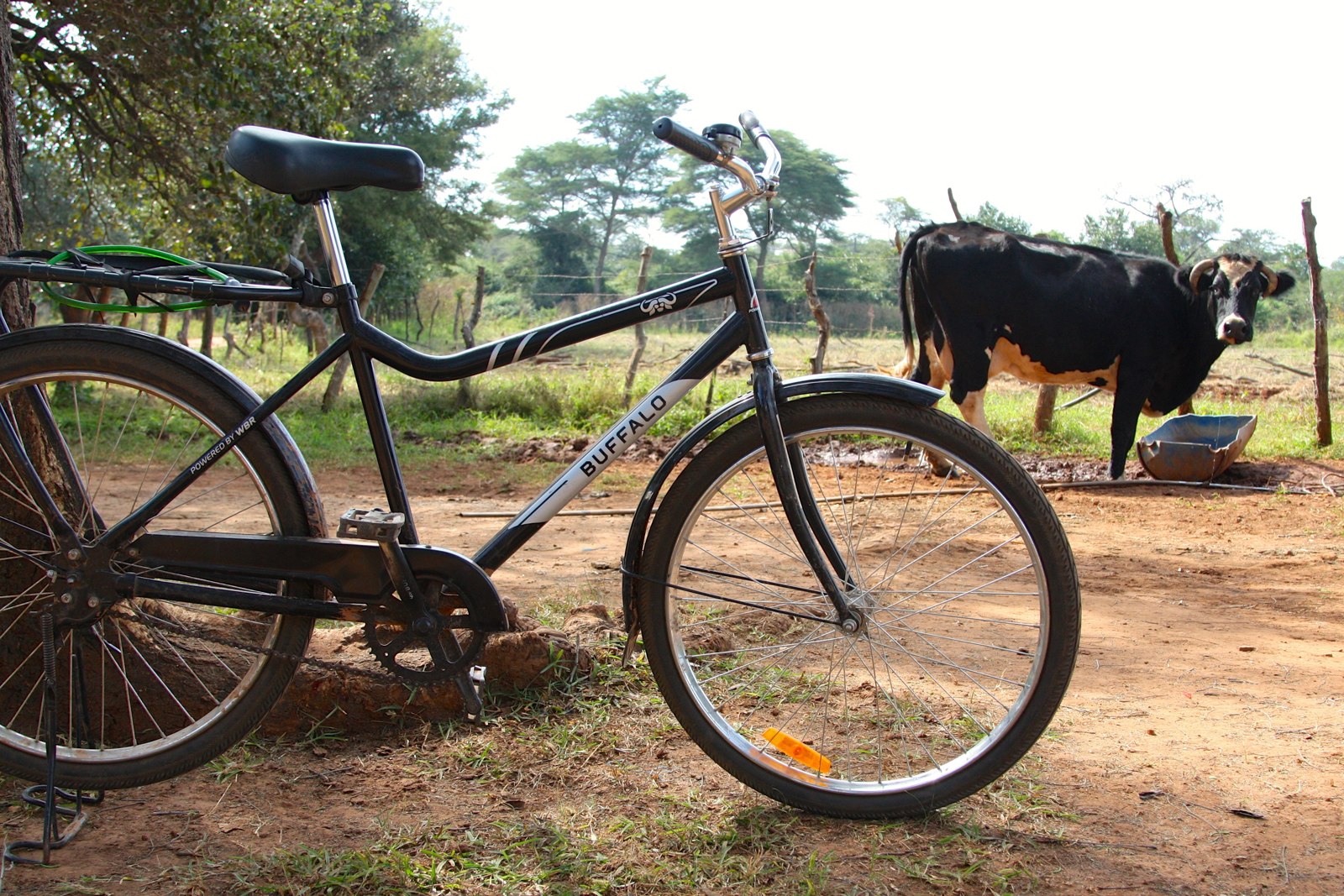
‘WBR shares their head office in Chicago with SRAM, which means we’ve got great resources at our disposal all the time. We also work closely with other partners in the bike industry, which enables us to be quite efficient as an organisation in this space,’ says Anthony.
The Buffalo bike that World Bicycle Relief provide to people is a far cry from the high-performance machines usually covered in this magazine. Weighing in at around 23 kilograms, these steel singlespeed bikes are designed to be the epitome of durability and reliability. Key features include an overbuilt steel frame, rear rack that can carry up to 100kg, coaster brakes, and long-lasting tyres specifically made by Kenda for Buffalo Bikes. Despite the incredibly robust package the Buffalo bike provides, for a $195AUD donation you can purchase a whole bike for someone in need.
Anthony says that despite providing the bikes at such a low cost, they’re about as durable as bikes get.
‘We have a saying here at WBR, which is that you could chuck a Buffalo Bike on the bottom of the ocean for ten years and it would still be running fine when you pulled it back up.’
Why are bicycles the right tool for achieving WBR’s objectives? Anthony says for people in remote parts of third world countries, owning a bicycle has a number of positive impacts.
‘For people in Africa, having a bike gives them far easier access to essentials such as food, water, and markets. Having a bike also allows people to use their time more proactively, as the bike frees them from the burden of distance, and they can travel further in less time.’
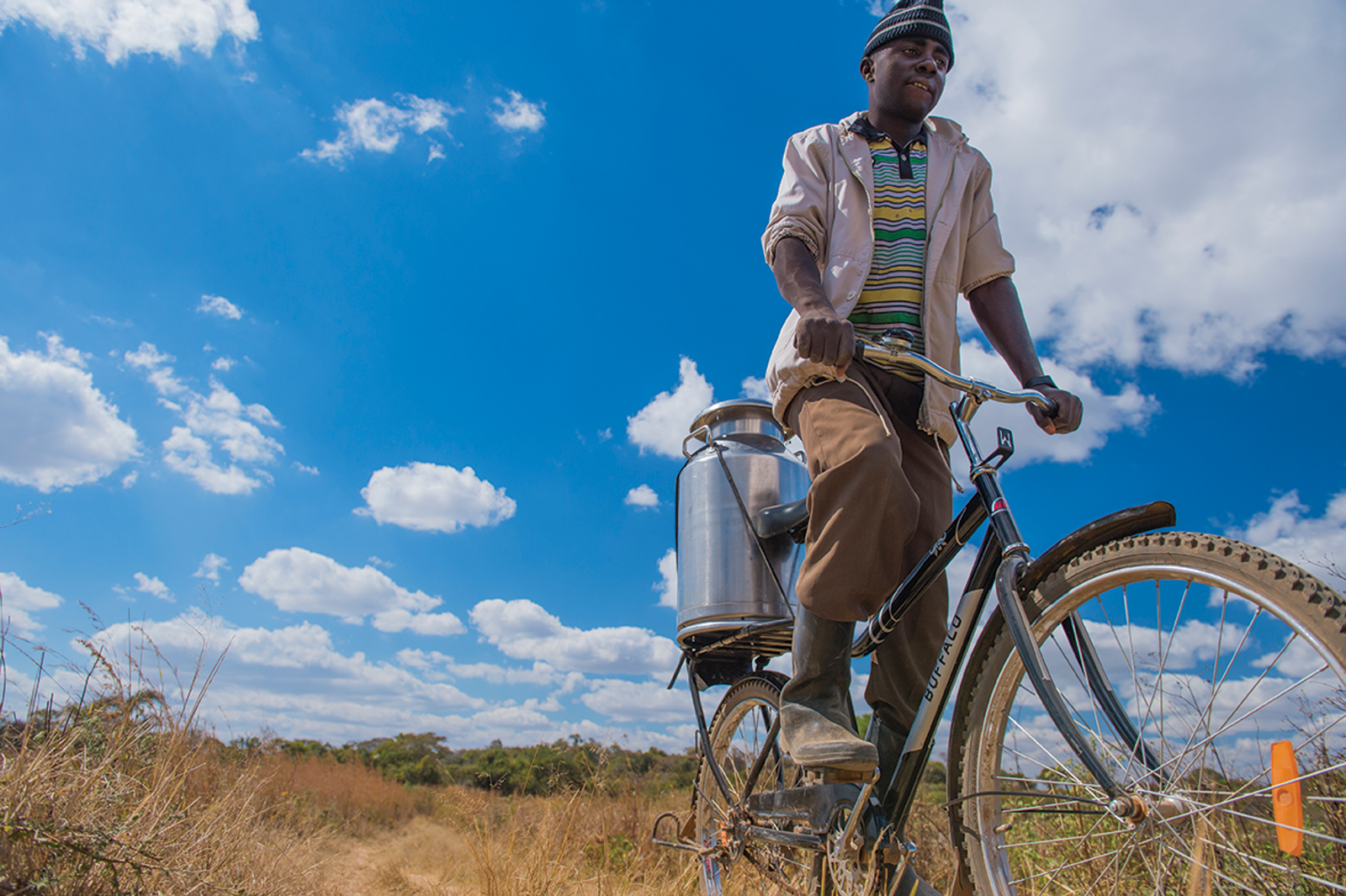
To keep the bikes going for years to come, as well as provide local jobs, WBR have over 2400 field mechanics in 19 countries. Anthony says the Buffalo bikes are specifically designed to be kept rolling with the minimum number of spares and tools.
‘The key to the Buffalo bikes is that they’re incredibly robust and simple to work on. The bike can largely be built and made with one spanner. In terms of ongoing maintenance, we train field mechanics who have a sustainable income fixing bikes for people in their local community.’
Anthony says the assembly of the bikes is another area where WBR are able to provide local work.
‘We ship all of the parts of the bike separately in containers and they’re assembled in their destination country. In a crate there’ll be frames, there’ll be wheels, and they get built locally. This is another area that helps us provide work for people.’
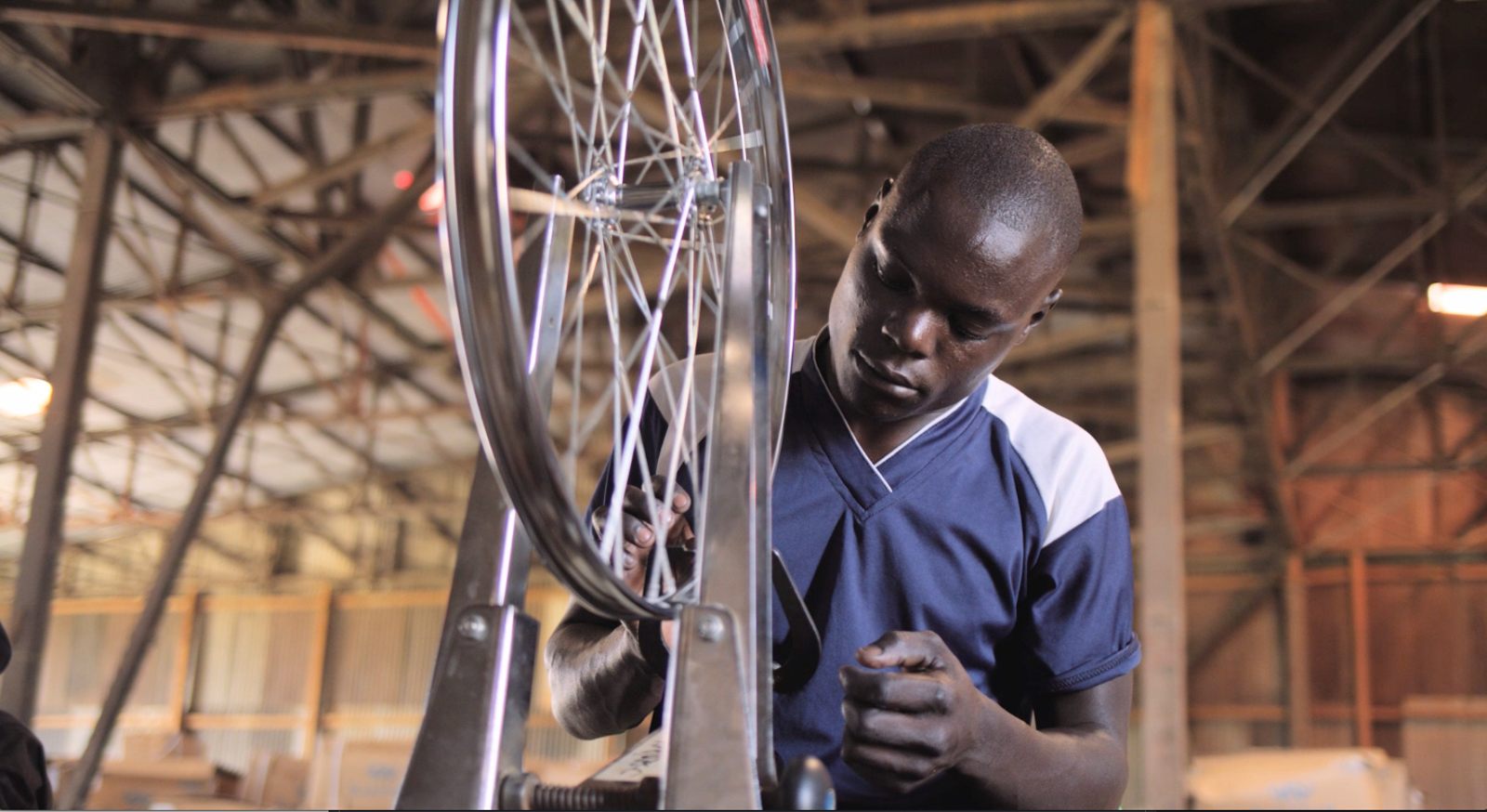
WBR also trains 1 field mechanic for every 50-100 Buffalo Bicycles distributed. A $65 donation equips a mechanic with the tools they need to support an entire community.
Providing sustainable jobs within local communities is part of a broader shift in the way WBR are working within local communities. Anthony says their model is shifting from being purely philanthropic to one where the recipient of the bike creates value in the bike by paying for it themselves, which can be done in a PAYG way.
‘We’re seeing a bit of a shift in how charities in the third world are working more generally. If you give someone a bike for free, they can sometimes value it less than if they’ve had to pay for it in some way. Last year at WBR the number of bikes being given, and the number of bikes being sold was about even. We’ll see that trend continue, with more bikes being bought rather than given in the coming years.’
In terms of the impact WBR is having globally, the numbers are pretty inspiring. WBR conducts randomised and controlled studies to measure their impact. A recent study showed that there was a 28 percent increase in female student attendance, and punctuality increased by 66 percent when the students were provided with Buffalo Bikes.
Another study showed a 58 percent increase in academic performance, as well as a 75 percent reduction on commute times. The bike also reduced absenteeism or leaving early due to safety concerns by 33 percent. Anecdotally, girls with bicycles also reported feeling an increased sense of self-image, and greater bargaining power within their households.
Anthony says there’s no gender bias within WBR, but giving women bikes has a huge impact.
‘There’s nothing gender biased about WBR; it just so happens that the mobilisation the bikes provide has a tremendously positive impact for women. In the African context, mobilising women has a huge impact on the community as a whole.’
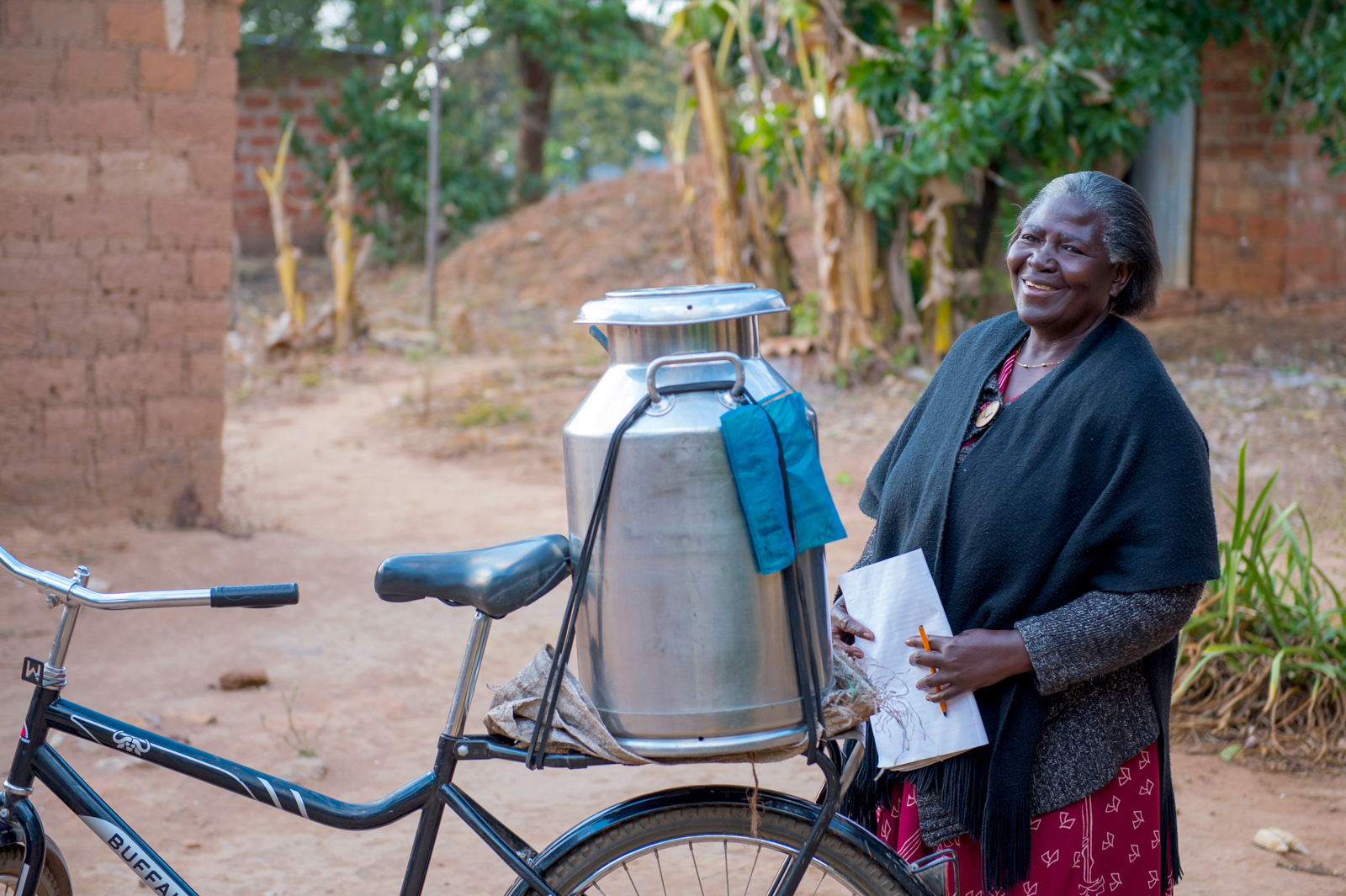
Health workers provided with Buffalo Bikes are also able to do more with this simple tool in their life. Studies show health workers were able to make 88 percent more patient visits aboard a Buffalo Bike. With the Covid-19 pandemic in Africa, Buffalo Bikes are making a real difference on the front line.
Another area is farming, where dairy farmers made 25 percent more deliveries using a Buffalo Bike. Anthony says in some communities the bike is used by multiple people to maximise its impact.
‘The bikes are often seen as a community tool. A child will ride to school, and while they’re learning a farmer will use the bike to make their deliveries far more time efficient. The farmer will then return the bike to the bike shed before the child finishes school.’
Whilst WBR is predominantly based on the African continent, they’re also in South East Asia and South America. Anthony says the organisation puts a lot of energy into deciding what countries they work in.
‘There are a number of factors that go into deciding what countries we go into, but one of the biggest is going into countries where there’s the least amount of resistance to getting bikes in people’s hands. The other area we tend to look at is rural areas where there’s significant poverty, as this is where we can be the greatest help.’
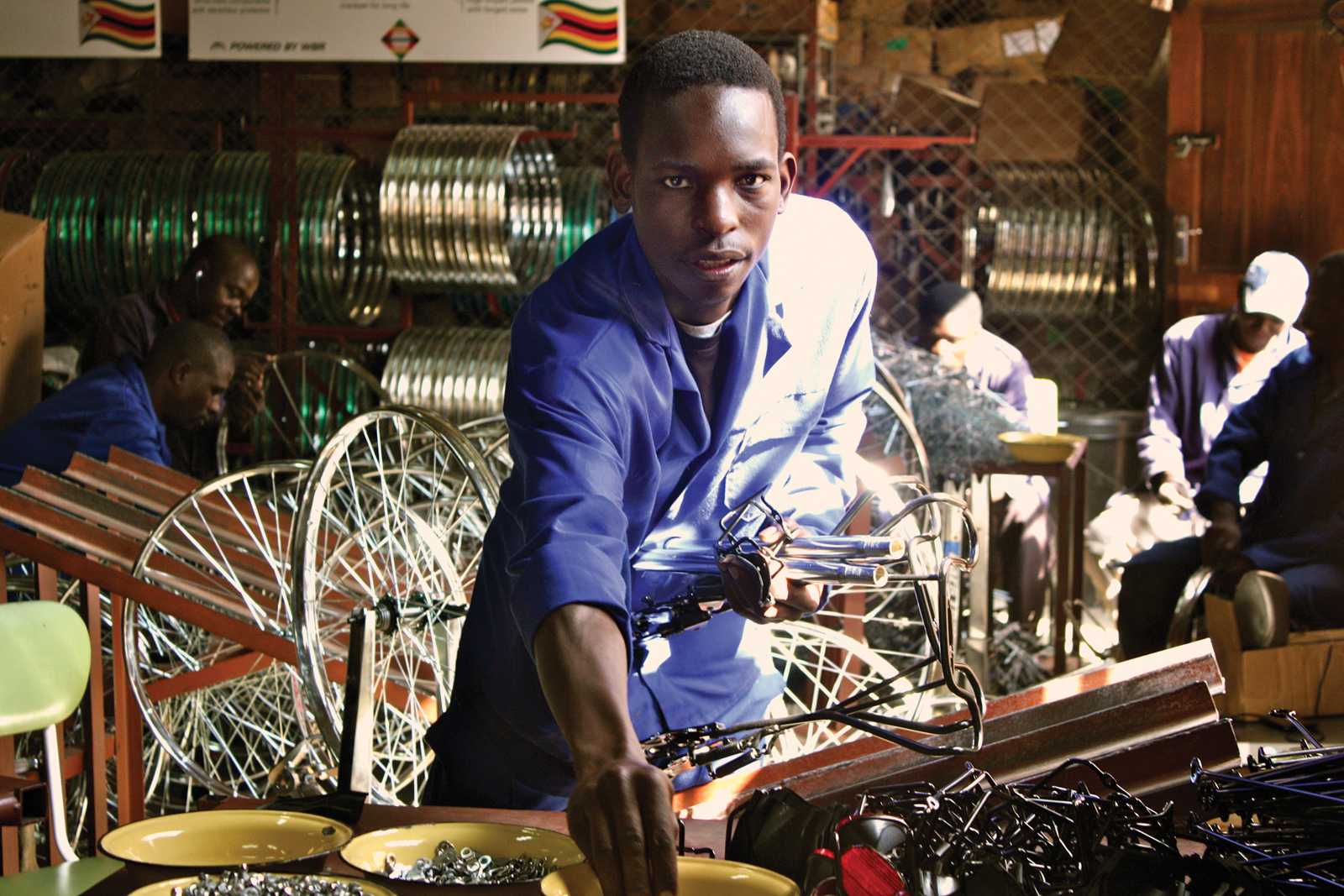
Within Australia, Anthony says WBR receives fantastic support from a number of local bike industry partners.
‘We’re lucky to have some fantastic companies that support us here in Australia, who I’ll take the opportunity to thank for their support anytime I can. These include brands like Knog and Quad-Lock, as well as coaching company RideTechnics.’
Anthony says the tangible nature of buying a bike as a gift for someone, as well as them seeing the impact it has makes buying a bike a great gift for anyone, not just cyclists. WBR also has a number of regular givers, who Anthony says have a massive impact on what the organisation can do.
‘One of the nice things about WBR is that you can buy a bike for someone. When they find out you’ve given someone a bike on their behalf and the impact that has it’s very tangible. Whilst buying bikes is fantastic, we’re very keen for people to become more regular givers.’
Whilst there are many quantifiable benefits to WBR’s distribution of Buffalo Bikes, Anthony also likes to think about the feeling of freedom you get riding a bike, and the joy this brings people.
‘Just like you or me, when you give someone a bike and they feel the freedom riding gives them, the world opens up to them. The simple joy of riding is something that our bikes provide and shouldn’t be overlooked.’
From two people inspired to make a difference back in 2005, World Bicycle Relief has come a long way in 16 years. To know that for less money than a set of tyres you can change someone’s life forever is both inspiring and humbling. With the passion of the individuals within WBR, as well as their strong industry relationships, it doesn’t look like World Bicycle Relief will be slowing down anytime soon.
Want to learn more about WBR or donate? Head to https://worldbicyclerelief.org.

